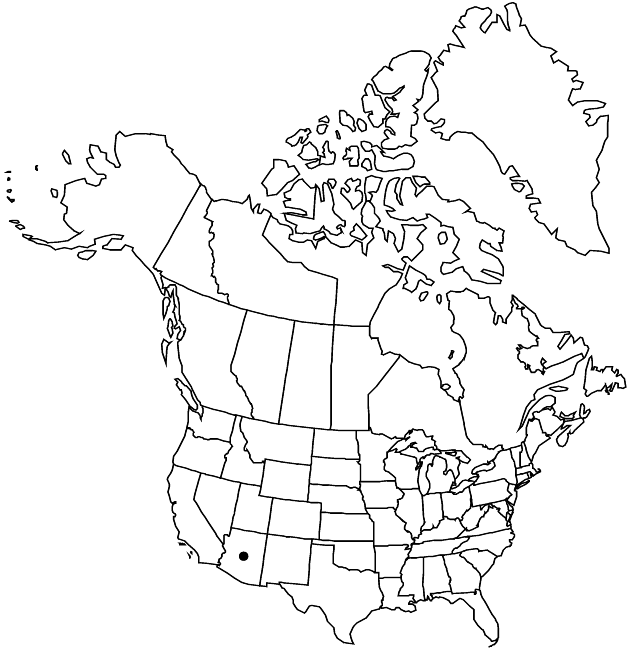Perityle ajoensis
J. Arizona Acad. Sci. 9: 35. 1974.
Perennials or subshrubs, to 30 cm; usually densely short-tomentose. Leaves (proximally opposite, distally alternate): petioles 3–10 mm; blades deltate, ovate, or suborbiculate, 5–15 × 5–15 mm, margins shallow-crenate to dentate. Heads borne singly or (2–10) in loose, corymbiform arrays, 7–9 × 6–9 mm. Peduncles 5–15 mm. Involucres campanulate to hemispheric. Phyllaries 15–20, oblanceolate to broadly lanceolate, 4–5 × 0.8–1.8 mm. Ray florets 0. Disc florets 20–45; corollas yellow, tubes 1–1.2 mm, throats tubular to narrowly funnelform, 1.3–1.6 mm, lobes 0.4–0.6 mm. Cypselae narrowly suboblong to oblanceolate, 2.5–3.5 mm, margins prominently calloused, short-hairy; pappi of 1(–2) stout bristles 1.8–2.8 mm. 2n = 34.
Phenology: Flowering spring–fall.
Habitat: Crevices of rocky canyon walls and cliff faces
Elevation: 800–1200 m
Discussion
Of conservation concern.
Perityle ajoensis occurs in the Ajo Mountains of Organ Pipe Cactus National Monument in Pima County.
Selected References
None.
